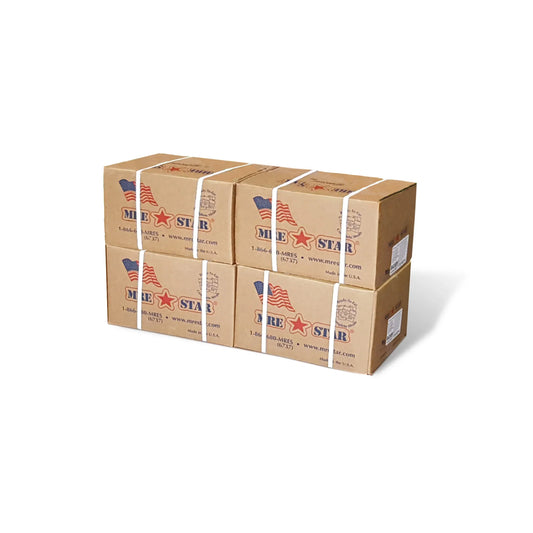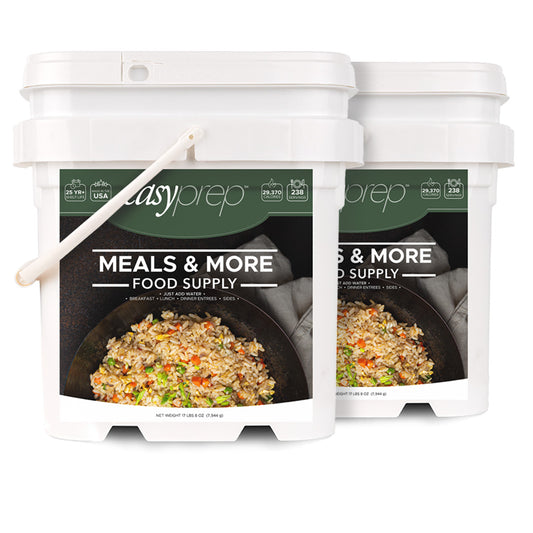How to Care For Baby Chicks
It's springtime, which means it's baby chick time. Whether you are raising chickens for pets or for a food source, you're going to want to follow some steps to make sure they stay healthy enough to grow into functional chickens. Here are some tips to help you start your newborn chicks in the right direction.
Brooder - Before you chicks are ready for their adult coop, they'll need to live in a brooder (also known as a brooding area). The size of your brooder depends on how many chicks you have. Newborn chicks need about half a foot per chick. As they get older they will need at least a foot of space each. If you have fewer than 30 chicks, a large box is sufficient for a good brooding area. Walls need to be at least 18 inches high. The box should be kept away from drafts, air conditioning vents, pets, and small children. Keep a screen or a towel over the top of the box- but make sure the covering doesn't touch the brooding lamp. Also, do not use a plastic box due to melting/fire risk.
Temperature - Newborn chicks need to be kept warm until they are fully feathered, which is usually when they are about six weeks old. Until they have their adult feathers, they are unable to regulate their own body temperature. This means they aren't ready to be let out in a normal chicken coop, but rather, they need to stay in the brooder.
Approximate Heat Needs by Age: - 1 Week 95-100 degrees - 2 Weeks 85-90 degrees - 3 Weeks 80-85 degrees - 4 Weeks 75-80 degrees - 5-7 Weeks 70-75 degrees - 8 Weeks 65-70 degrees - 9 Weeks 65+ degrees
Brooding lamp- A brooding lamp can help keep your brooding area warm. You'll know if your area is too hot or cold, depending on how the chicks are acting. Chicks that are too hot spread out around the coop to stay cool. Other signs of overheated include chicks that don't make noise or droop their heads and pant. If it's too cold the chicks will huddle together and make a lot of noise. Adjust the height of your lamp (or the wattage of your bulbs) according to their needs.
Bedding - Baby chicks aren't clean creatures. Besides natural bodily excrements, they lose their baby feathers as they grow adult feathers. You're going to want to make sure you have a good layer of bedding on the bottom of the brooder to help keep the area clean. Lay out a layer of newspaper and then cover the newspaper with 2-3 inches of pine shavings, straw, or other commercial bedding materials. Clean and change the bedding regularly. You'll know when it's time to change the bedding by the smell of the brooding area. (Note- Keep the layer of bedding thick so chicks' legs develop properly. Slippery floors can cause growing chicks' legs to bow.)
Food and water- Obviously, nutrition is extremely important for a growing chick. Baby chicks are constantly hungry and constantly scavenging for food. Talk to your local farm supply store for their recommended starter feeds made specifically for the different stages of growth. Make sure you have a constant source of water. While the food can be kept in a bowl or tin, we recommend you use a chick fountain for water. Chicks are messy eaters/drinkers. Anything in the bowl will probably end up on the bedding. Water will make bedding soggy and can cause bacterial/fungal growth.
Things to Remember- Chicks can carry salmonella. Always wash your hands (or any affected surface) thoroughly after handling baby chicks. Also, salmonella germs can adhere to the shedding baby feathers, which can be picked up by wind, drafts, etc. and spread to other areas. Keep brooders far from eating, living, or bathing areas. https://www.nutrenaworld.com/blog/heat-lamps-for-chicks https://www.tractorsupply.com/know-how_pets-livestock_chicken_how-to-care-for-new-baby-chicks













